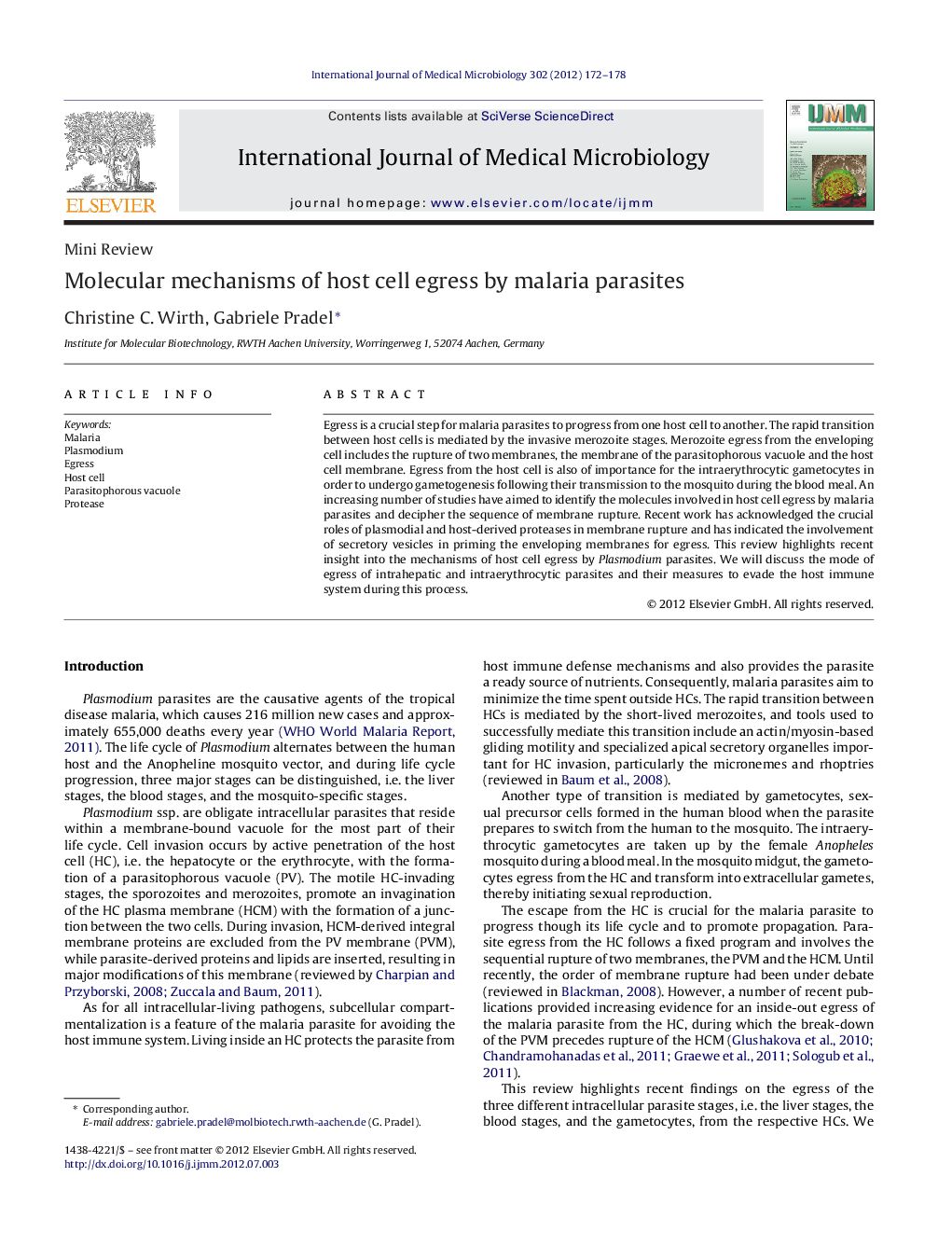| Article ID | Journal | Published Year | Pages | File Type |
|---|---|---|---|---|
| 2054463 | International Journal of Medical Microbiology | 2012 | 7 Pages |
Egress is a crucial step for malaria parasites to progress from one host cell to another. The rapid transition between host cells is mediated by the invasive merozoite stages. Merozoite egress from the enveloping cell includes the rupture of two membranes, the membrane of the parasitophorous vacuole and the host cell membrane. Egress from the host cell is also of importance for the intraerythrocytic gametocytes in order to undergo gametogenesis following their transmission to the mosquito during the blood meal. An increasing number of studies have aimed to identify the molecules involved in host cell egress by malaria parasites and decipher the sequence of membrane rupture. Recent work has acknowledged the crucial roles of plasmodial and host-derived proteases in membrane rupture and has indicated the involvement of secretory vesicles in priming the enveloping membranes for egress. This review highlights recent insight into the mechanisms of host cell egress by Plasmodium parasites. We will discuss the mode of egress of intrahepatic and intraerythrocytic parasites and their measures to evade the host immune system during this process.
